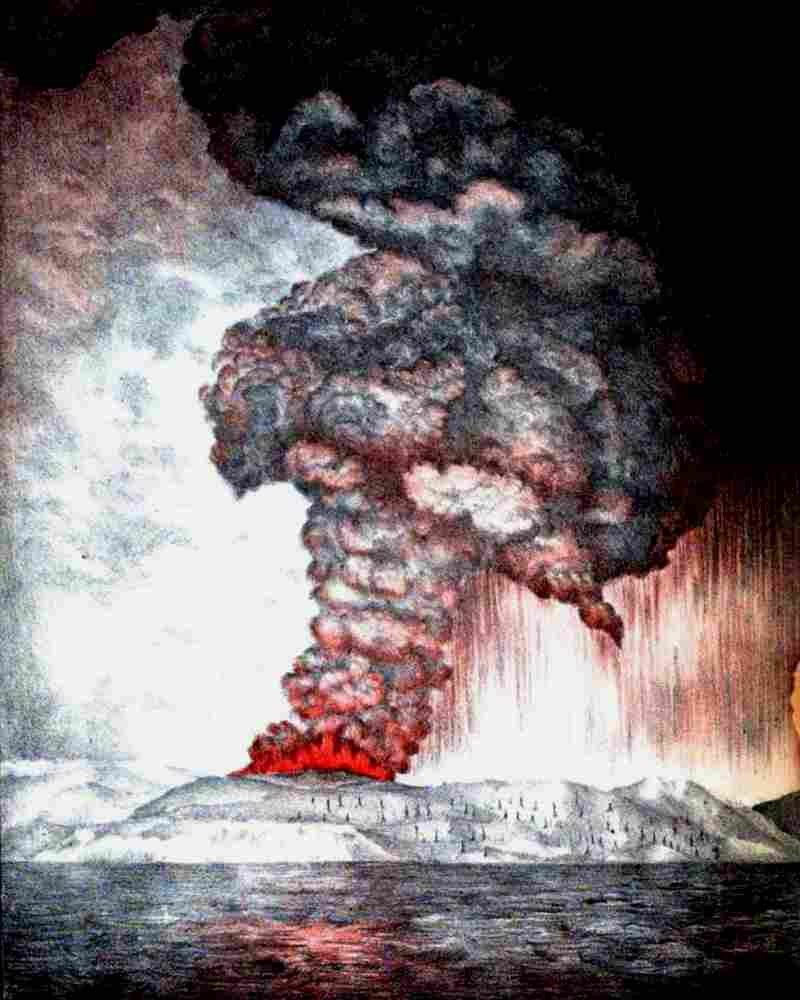Today in Science History - Quickie Quiz
Krakatoa

Coloured ChromoLithograph Plate I from Royal Society
The Eruption of Krakatoa: And Subsequent Phenomena, Plate I, subtitled View of Krakatoa during the Early Eruption Stage of the Eruption
from a Photograph taken on Sunday 27th of May, 1883. (source)
On 26 August 1883, when Mount Krakatoa on an Indonesian island erupted, it was the most violent explosion in human history. The sound of the blast was so loud, it was heard as far away as Australia, and the shockwave was sensed by barometer in London, England.
The geological disturbance destroyed two-thirds of the island and created huge tsunami waves 100-m (300-ft) high that swept across the immediate region, killing an estimated 36,000 people, and was powerful enough to cross the Indian Ocean, reach the Atlantic Ocean, and still send a ripple of its effects up the English Channel.
The enormous quantities of dust that Krakatoa thrust high into the stratosphere eventually travelled around the world. The pronounced scattering of sunlight that resulted produced memorable deep red sunsets. The disruption in the atmosphere blocked sunlight so much that the world temperatures dropped, and weather patterns were chaotic for five years afterwards.
Nature bears long with those who wrong her. She is patient under abuse. But when abuse has gone too far, when the time of reckoning finally comes, she is equally slow to be appeased and to turn away her wrath. (1882) --
Nathaniel Egleston, who was writing then about deforestation, but speaks equally well about the danger of climate change today.
 Carl Sagan
Carl Sagan: In science it often happens that scientists say, 'You know that's a really good argument; my position is mistaken,' and then they would actually change their minds and you never hear that old view from them again. They really do it. It doesn't happen as often as it should, because scientists are human and change is sometimes painful. But it happens every day. I cannot recall the last time something like that happened in politics or religion. (1987) ...
(more by Sagan) Albert Einstein: I used to wonder how it comes about that the electron is negative. Negative-positive—these are perfectly symmetric in physics. There is no reason whatever to prefer one to the other. Then why is the electron negative? I thought about this for a long time and at last all I could think was “It won the fight!” ...
(more by Einstein) Richard Feynman: It is the facts that matter, not the proofs. Physics can progress without the proofs, but we can't go on without the facts ... if the facts are right, then the proofs are a matter of playing around with the algebra correctly. ...
(more by Feynman)





